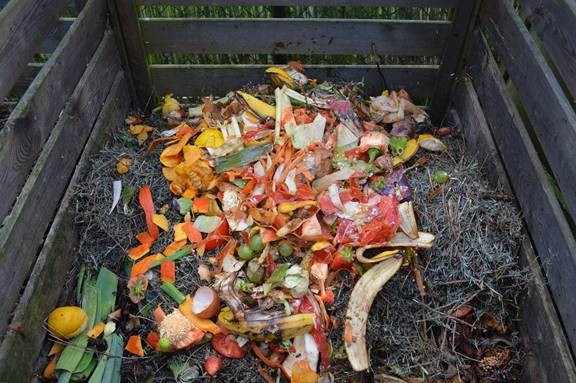
MONTPELIER - Next time you toss that banana peel in the trash, you may want to consider composting it instead. Each year, Vermonters throw away almost 100,000 tons of organics, like food scraps and yard debris, all of which could be composted or managed in better ways. This waste adds up, filling landfills and contributing to massive greenhouse gas emissions.
This spring, great minds will gather on April 5, 2018 at the 12th annual Vermont Organics Recycling Summit (VORS) at Vermont Technical College in Randolph, Vermont.
“The summit aims to help Vermonters and regional partners meet the State’s organics diversion, food rescue, and food scrap recycling goals,” said Natasha Duarte, the Director of the Composting Association of Vermont. “Sessions will highlight business success stories, the use of compost in stormwater management projects, the latest research, and community outreach models. We’re especially excited to hear Nora Goldstein, the Editor of BioCycle Magazine, give this year’s keynote presentation.”
The summit, put on by the Composting Association of Vermont (CAV) and the Vermont Agency of Natural Resources, gathers leaders and learners from across the state to discuss creative ways to keep organics out of the trash and to transform organics into valuable products.
“When communities keep organics out of the trash, they support green businesses and jobs, reduce the need for landfills, cut greenhouse gas emissions, and produce compost, which has restorative soil properties,” said Josh Kelly, the Materials Management Section Chief in the Agency of Natural Resources. “Efforts to keep food out of the garbage can also put more food on the tables of families in need. For example, many grocery stores now partner with the Vermont Foodbank to send edible food to people, instead of throwing it away.”
Motivated by these benefits and the Universal Recycling law, which bans food scraps from the landfill in 2020, Vermonters are making a difference as they reduce food waste, partner with food shelves and businesses, and use compost to build healthier soils and more resilient communities.
Learn more about VORS or register online at https://www.regonline.com/VORS2018 or contact Natasha Duarte at info@compostingvermont.org or 802-373-6499.
The Composting Association of Vermont (CAV) is a nonprofit organization. It promotes organics recycling that protects and benefits the environment. The Vermont Agency of Natural Resources, Department of Environmental Conservation (ANR/DEC) is dedicated to protecting and improving the health of Vermont’s people and ecosystems and promoting the sustainable use of Vermont’s natural resources.
Caption: Food scraps decompose in a home compost pile. Be sure to cover food scraps with dried leaves or yard trimmings to add air to the pile, which speeds up decomposition. Covering scraps also minimizes animal-enticing smells (Credit: Vermont Department of Environmental Conservation)
